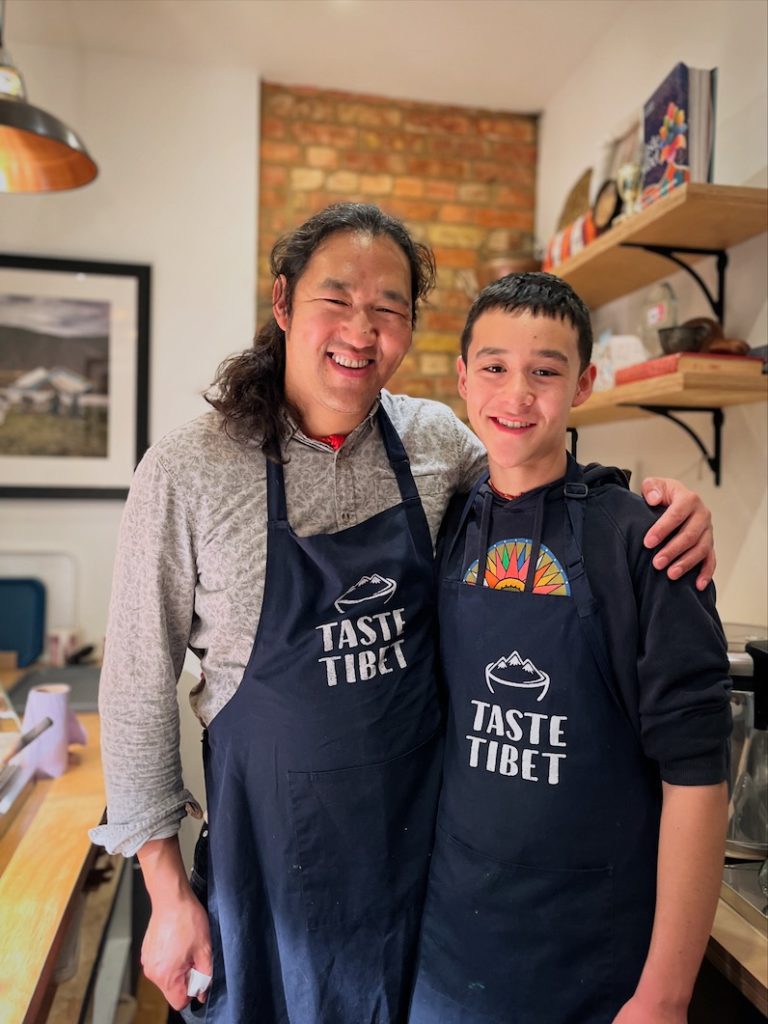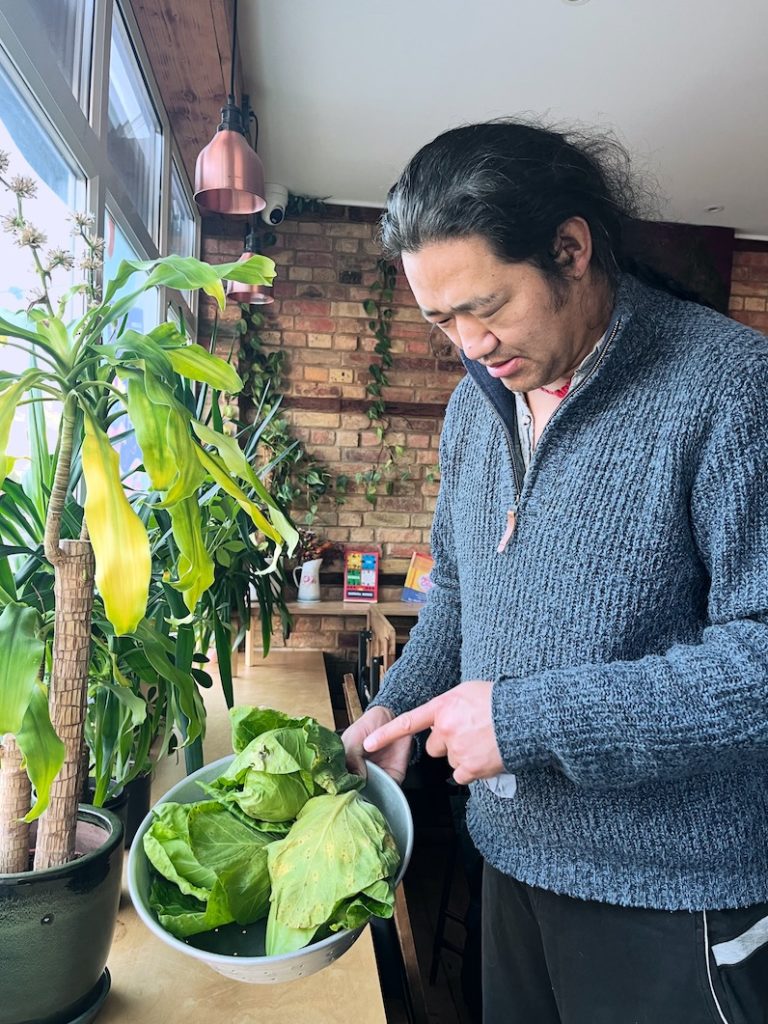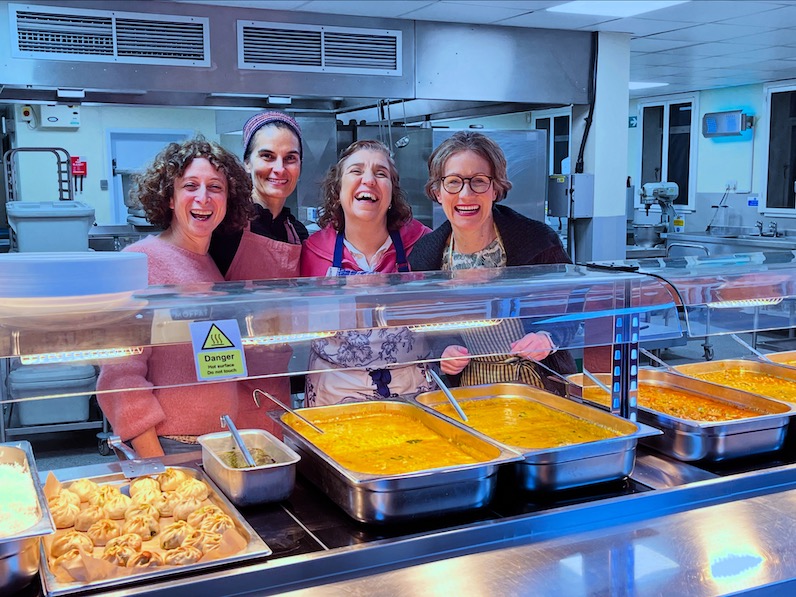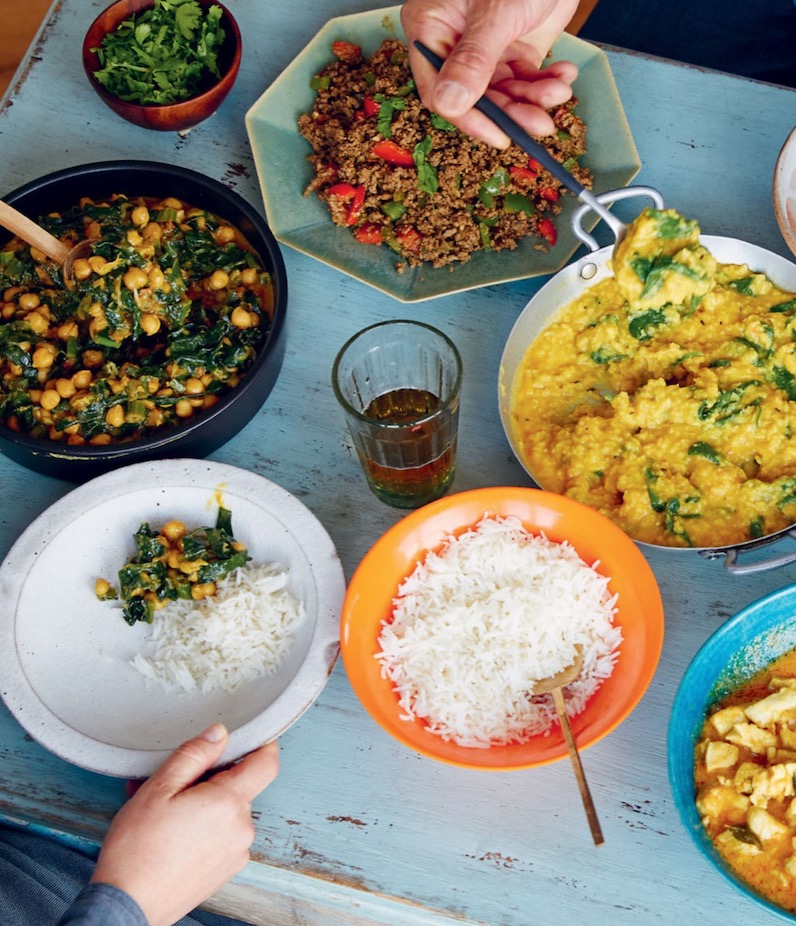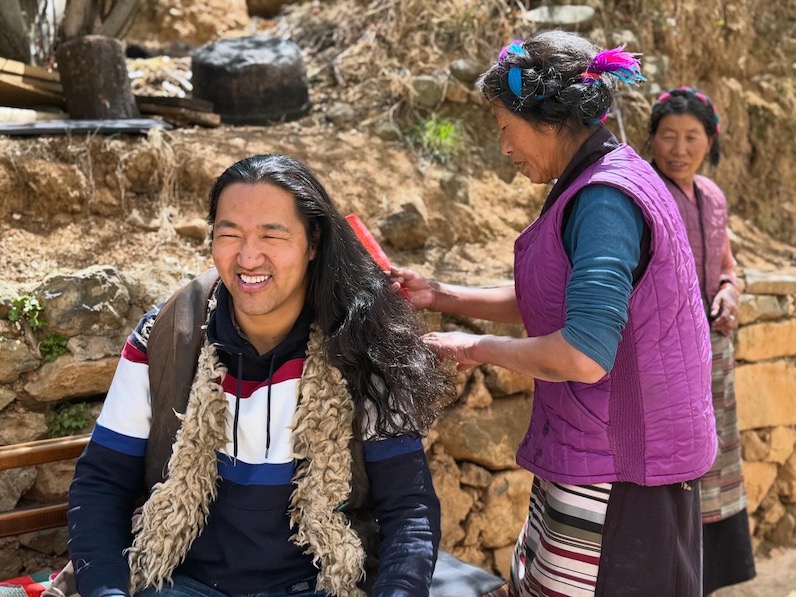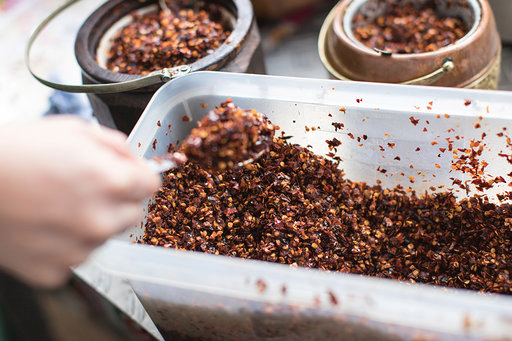
by @a_j_knight_
Tibet is a mountainous country, parts of which are very inaccessible, and when people get ill they are usually a long way from a doctor or a hospital.
Tibetans in the more remote parts of Tibet have developed their own system of healthcare in response to their experience of surviving in a particular region. In traditional Tibetan medicine, healing through diet is considered more effective than healing through medicine.
Food and drink, with their minimal side effects, existed before “medicine”. They may be the cause of a disease, but they can also be used to prevent it. A Tibetan doctor will always look first at administering dietary and behaviour change before prescribing medication.
In traditional Tibetan medicine, vegetables are considered key. They are the most potent protection against disease, and they are also more easily come by than other organic matter.
Here are a few of the vegetables that we use regularly in the food at our stall. We have listed alongside them the health-giving properties assigned to them in Tibetan medicine, and also, depending on your disposition, their potential side effects:
Spinach: this relieves constipation, quenches thirst and helps digestion, but can cause high blood pressure and diarrhoea.
Tomatoes: these heal disorders of the blood, help to cool a fever, and aid digestion, but consumed raw they can lead to skin disorders and headaches.
Onions: these help to encourage appetite and also blood circulation, and reduce cholesterol. Avoid if you are prone to BO, or if you are running a fever.
Garlic: this relieves abdominal cramps, asthma and the common cold. It is also good for insomnia. Overconsumption can be harmful to the liver, and may impair vision.
Ginger: this relieves nausea and vomiting, and helps blood circulation, but can lead to thirst and constipation.
Chilli: this is great for the digestive system, but too much may damage the lungs and the liver.
Does any of this resonate with you? Is there maybe a reason that you can’t get enough of our spinach and chickpeas? Or that you crave our chilli dip?
In the west, where we have ready access to doctors and medical treatment, it can be easy to overlook the potency of what we dish up. We rarely stop to scrutinise what we consume in terms of whether or not agrees with us, let alone to consider that it may provide more effective, and longer-lasting relief than prescribed medication.
Yeshi’s family hardly ever visit the doctor, but when they do a consultation will be a lot more involved than the ten minutes we are usually granted here in the west. When is the last time your doctor asked you what you eat? In Tibet, you won’t be able to hide that sweet tooth for long!
#tastetibet #tibet #tibetanfood #medicine #tibetanmedicine #vegetables

